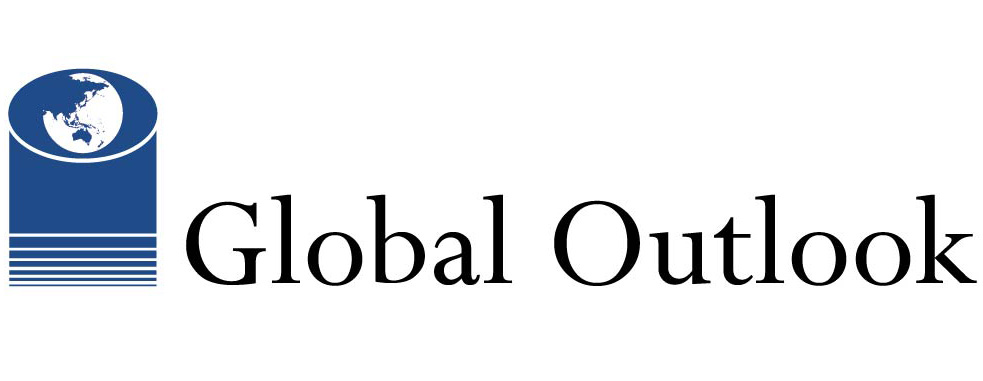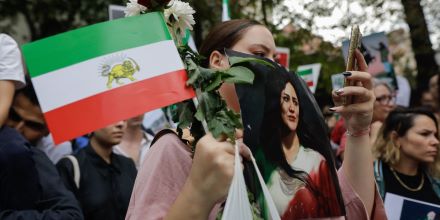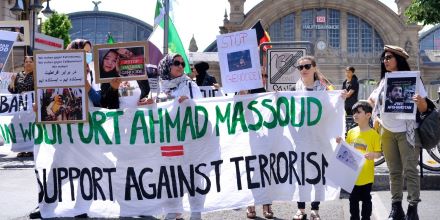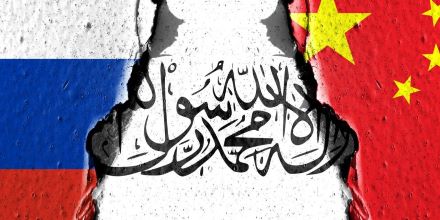
Curated expert opinion on intractable contemporary issues
Global Outlook: Contemporary Peace Research and Practice
Has the Iranian Regime Reached the End of its Rope?
By Amin Saikal | 27 October, 2022
Supreme Leader Ayatollah Ali Khamenei has blamed the West for fomenting the widespread unrest that has rocked Iran over the past few weeks. But his claim is no longer heeded. The ranks of the protestors have swelled despite the authorities’ forceful crackdown. The Islamic regime faces its worst legitimacy crisis since its advent in the wake of the revolution of 1978–79 that toppled the pro-Western autocracy of Mohammad Reza Shah.
Al-Qaeda, the Taliban and the Tragedy of Afghanistan
By Amin Saikal | 10 September, 2022
As the world marks the anniversary of the 9/11 terror attacks this weekend, two other events should be remembered. Afghan commander Ahmad Shah Massoud was assassinated on 9 September 2001 by al-Qaeda agents, two days before the attacks on New York and Washington. Massoud had fought Soviet forces in Afghanistan in the 1980s and the Taliban and al-Qaeda alliance in the following decade. The other event in this bleak trio is the Taliban’s reassumption of power in the wake of the US and allied retreat from Afghanistan a year ago. Together they explain the mess that is Afghanistan today.
The Taliban’s Disastrous Year-Long Rule in Afghanistan
By Amin Saikal | 19 August, 2022
One year on, the Taliban’s rule in Afghanistan continues to be marked by extremist brutality in the name of Islam and defiance of the UN-led international demand for an inclusive government and respect for human rights. The group has not been accorded global recognition and the Afghan people are in the midst of the worst humanitarian crisis in Afghanistan’s modern history. The country’s future prospects have never been so bleak.
The West is Facing a New Alliance of Autocracies and Theocracies
By Amin Saikal | 16 July, 2022
World politics has reached an ominous phase of polarisation. The struggle between the US-led democracies and the Russo-Chinese-led autocracies primarily underpins this development. Yet there’s also another dangerous dimension to it: the emergence of close relations between the autocratic powers and such extremist theocratic forces as the Taliban in Afghanistan.
Bridging Troubled Waters: Forging Cohesion in Divided Societies
By Chaiwat Satha-Anand | 01 July, 2022
In an era of social tension and conflict, building bridges to foster cohesion has become critical. As the classic song “Bridge Over Troubled Water” reminds us, we should not ignore the troubled waters under the bridges that we are building.
Squaring the Circle
By Herbert Wulf | 22 June, 2022
Immediately after the Russian invasion of Ukraine, all the governments of the EU and the European NATO countries reacted. Not only with support for Ukraine, but also by announcing an increase of their own military spending. There are some indications that not everything can actually be financed.
The views and opinions expressed in Global Outlook are those of the authors and do not necessarily reflect the official policy or position of Toda Peace Institute.
Has the Iranian Regime Reached the End of its Rope?
By Amin Saikal | 27 October, 2022
Supreme Leader Ayatollah Ali Khamenei has blamed the West for fomenting the widespread unrest that has rocked Iran over the past few weeks. But his claim is no longer heeded. The ranks of the protestors have swelled despite the authorities’ forceful crackdown. The Islamic regime faces its worst legitimacy crisis since its advent in the wake of the revolution of 1978–79 that toppled the pro-Western autocracy of Mohammad Reza Shah.
Al-Qaeda, the Taliban and the Tragedy of Afghanistan
By Amin Saikal | 10 September, 2022
As the world marks the anniversary of the 9/11 terror attacks this weekend, two other events should be remembered. Afghan commander Ahmad Shah Massoud was assassinated on 9 September 2001 by al-Qaeda agents, two days before the attacks on New York and Washington. Massoud had fought Soviet forces in Afghanistan in the 1980s and the Taliban and al-Qaeda alliance in the following decade. The other event in this bleak trio is the Taliban’s reassumption of power in the wake of the US and allied retreat from Afghanistan a year ago. Together they explain the mess that is Afghanistan today.
The Taliban’s Disastrous Year-Long Rule in Afghanistan
By Amin Saikal | 19 August, 2022
One year on, the Taliban’s rule in Afghanistan continues to be marked by extremist brutality in the name of Islam and defiance of the UN-led international demand for an inclusive government and respect for human rights. The group has not been accorded global recognition and the Afghan people are in the midst of the worst humanitarian crisis in Afghanistan’s modern history. The country’s future prospects have never been so bleak.
The West is Facing a New Alliance of Autocracies and Theocracies
By Amin Saikal | 16 July, 2022
World politics has reached an ominous phase of polarisation. The struggle between the US-led democracies and the Russo-Chinese-led autocracies primarily underpins this development. Yet there’s also another dangerous dimension to it: the emergence of close relations between the autocratic powers and such extremist theocratic forces as the Taliban in Afghanistan.
Bridging Troubled Waters: Forging Cohesion in Divided Societies
By Chaiwat Satha-Anand | 01 July, 2022
In an era of social tension and conflict, building bridges to foster cohesion has become critical. As the classic song “Bridge Over Troubled Water” reminds us, we should not ignore the troubled waters under the bridges that we are building.
Squaring the Circle
By Herbert Wulf | 22 June, 2022
Immediately after the Russian invasion of Ukraine, all the governments of the EU and the European NATO countries reacted. Not only with support for Ukraine, but also by announcing an increase of their own military spending. There are some indications that not everything can actually be financed.
The views and opinions expressed in Global Outlook are those of the authors and do not necessarily reflect the official policy or position of Toda Peace Institute.





